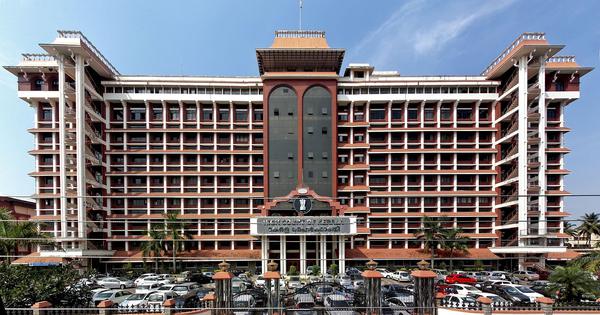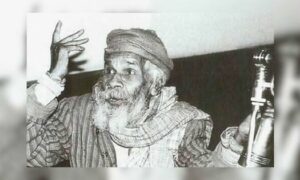
The Kerala High Court on Friday held that a disputed 365-acre land in the Munambam area of Ernakulam district was not intended to be a waqf property and had been given as a gift to the management of Farook College, The Hindu reported.
A division bench of Justices Sushrut Arvind Dharmadhikari and VM Syam Kumar said that the Kerala Waqf Board classifying the land as waqf in 2019 was “bad in law” and “palpably violative” of several Waqf Acts, The News Minute reported.
The board “acted as a sheer land-grabber eyeing on the subject property, which had assumed high value due to commercial developments in the last few decades”, the bench was quoted as having observed.
The dispute dates back to 1950, when a man Mohammed Siddeeq Sait gifted more than 400 acres of land to Farook College, The News Minute reported. Farook College is located in Kozhikode, although it owns this land.
Over the years, parts of the land were sold and has been inhabited by about 600 Christian and Hindu families, The Indian Express reported. The land, which is along the coast, had also decreased in size due to sea erosion.
In 2019, the Kerala Waqf Board declared the land as waqf and sought to cancel those sales.
A waqf is an endowment under Islamic law dedicated to a religious, educational or charitable cause. Each state has a waqf board led by a legal entity vested with the power to acquire, hold and transfer property.
After the Kerala Waqf Board’s declaration in 2019, the state government set up a judicial commission to give recommendations for a resolution.
The commission had recommended that the Kerala government acquire the disputed land if the occupants failed to get justice in the court.
However, a single bench of the court cancelled the commission in April.
This was challenged by the state government, after which a division bench temporarily stayed the order cancelling the commission.
On Friday, the division bench set aside the April order and said that the state government was at liberty to proceed with the implementation of the recommendations given by the commission, The Indian Express reported.
The court also said that the deed in 1950, under which Sait gifted the land to Farook College, was never intended to create any “permanent dedication in favour of the Almighty God”.
It was simply a gift deed in favour of the college management, the bench added.
The court also said that merely because the deed was named a waqf endowment does not give it the waqf character, the newspaper reported.
It further criticised the Kerala Waqf Board for not acting on the property between 1950 and 2019, The Hindu reported.
The board had skipped the statutory requirements of carrying out a survey and conducting quasi-judicial inquiry with the participation of the stakeholders before declaring it as a waqf, the court said.
“If the judicial seal of approval is placed on such an arbitrary declaration of waqf, tomorrow any random building or structure, including Taj Mahal, Red Fort, Niyama Sabha Mandiram [the state legislature complex), or even this court’s building would be vulnerable of being painted with the brush of a waqf property by the waqf board on the basis of any random document at any point of time,” The Hindu quoted the bench as saying.
It held that the court was obligated to act under the Constitution, especially in a secular country such as India, and cannot permit such a “belated and fanciful exercise” of power.
The Kerala Waqf Board acted “contrary to the procedure and provisions of the Waqf Act, 1954, as well as 1995, after an inordinate delay of around 70 years, which itself makes the whole exercise unreasonable in nature and not binding on the state Government”, the court added.
However, the court stopped short of quashing the decision of the board, The Hindu reported.
A history of the dispute
In the early 1900s, the erstwhile Travancore royal family had leased more than 400 acres of land to a trader Abdul Sathar Moosa Sait, The Indian Express reported. The land had already been occupied by fishing communities.
In 1948, the trader’s son-in-law, Mohammed Siddeeq Sait, got the leased land registered in his name and decided to hand it over to the management of Kozhikode’s Farook College. The college had been established in 1948 to empower Muslims from northern Kerala through education.
In the 1960s, a legal battle began between the occupants of the land and the management of the college, which wanted to evict them, according to The Indian Express. The occupants did not have legal documents to prove ownership of the land despite residing there for generations, the newspaper added.
Subsequently, the college management sold the land to its occupants.
However, the college management did not mention in the sale deeds that the land in question was waqf property but instead said that the property was received under a gift deed in 1950.
In 2019, the Kerala Waqf Board staked claim on the land. In 2022, the state revenue department froze the owners’ revenue rights, The Indian Express reported.
Since then, the residents, a majority of whom are Catholics, had been demanding restoration of the rights.
📰 Crime Today News is proudly sponsored by DRYFRUIT & CO – A Brand by eFabby Global LLC
Design & Developed by Yes Mom Hosting






